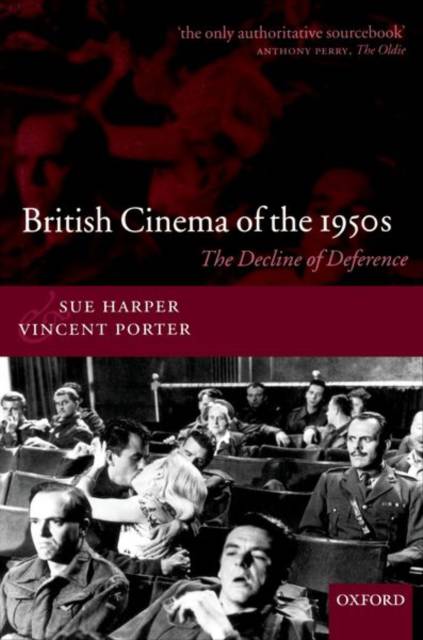
- Afhalen na 1 uur in een winkel met voorraad
- Gratis thuislevering in België vanaf € 30
- Ruim aanbod met 7 miljoen producten
- Afhalen na 1 uur in een winkel met voorraad
- Gratis thuislevering in België vanaf € 30
- Ruim aanbod met 7 miljoen producten
Zoeken
€ 118,95
+ 237 punten
Uitvoering
Omschrijving
In this definitive and long-awaited history of 1950s British cinema, Sue Harper and Vincent Porter draw extensively on previously unknown archive material to chart the growing rejection of post-war deference by both film-makers and cinema audiences. Competition from television and successive changes in government policy all forced the production industry to become more market-sensitive. The films produced by Rank and Ealing, many of which harked back to wartime structures of feeling, were challenged by those backed by Anglo-Amalgamated and Hammer. The latter knew how to address the rebellious feelings and growing sexual discontents of a new generation of consumers. Even the British Board of Film Censors had to adopt a more liberal attitude. The collapse of the studio system also meant that the screenwriters and the art directors had to cede creative control to a new generation of independent producers and film directors. Harper and Porter explore the effects of these social,
cultural, industrial, and economic changes on 1950s British cinema.
cultural, industrial, and economic changes on 1950s British cinema.
Specificaties
Betrokkenen
- Auteur(s):
- Uitgeverij:
Inhoud
- Aantal bladzijden:
- 420
- Taal:
- Engels
Eigenschappen
- Productcode (EAN):
- 9780198159353
- Verschijningsdatum:
- 15/12/2007
- Uitvoering:
- Paperback
- Formaat:
- Trade paperback (VS)
- Afmetingen:
- 229 mm x 155 mm
- Gewicht:
- 745 g

Alleen bij Standaard Boekhandel
+ 237 punten op je klantenkaart van Standaard Boekhandel
Beoordelingen
We publiceren alleen reviews die voldoen aan de voorwaarden voor reviews. Bekijk onze voorwaarden voor reviews.











